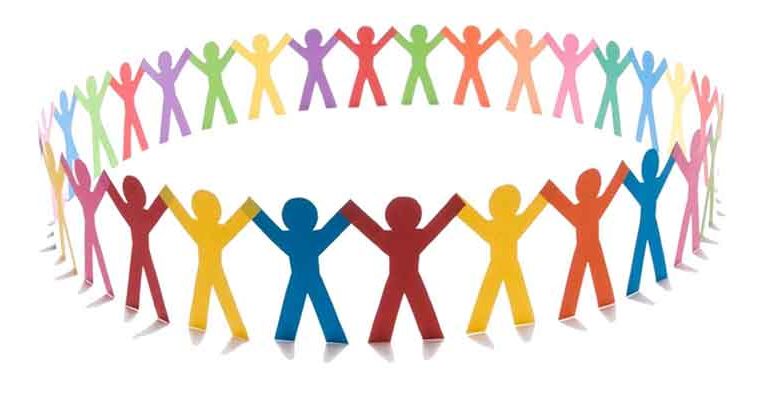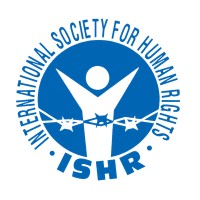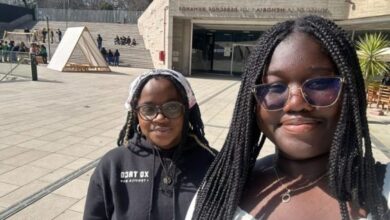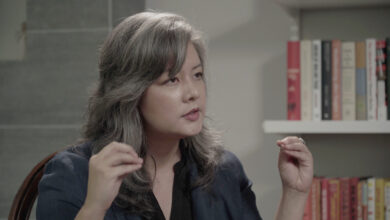Integrating Social Justice and Human Rights in Social Innovation and Entrepreneurship

In an increasingly interconnected world facing complex social, economic, and environmental challenges, the work of social innovators and entrepreneurs holds immense potential to drive transformative change. However, for their efforts to be truly meaningful and sustainable, they must be grounded in the principles of social justice, human rights, and a deep understanding of both local and global power dynamics. This ensures that the solutions developed are not only effective but also equitable and inclusive.
Social justice is the cornerstone of any initiative aimed at lasting change. Social innovators and entrepreneurs must prioritize addressing systemic inequities that marginalize certain groups. This requires understanding the socio-economic and cultural contexts in which they operate and designing interventions that specifically uplift disadvantaged communities.
Human rights principles must be integral to the mission and operations of social enterprises. This means ensuring that the rights of all stakeholders—especially vulnerable populations—are respected and upheld. Initiatives should be designed to empower individuals and communities, giving them agency and voice in the process. For example, fair trade enterprises not only provide economic opportunities for producers in developing countries but also ensure their rights are protected, including fair wages, safe working conditions, and the right to collective bargaining. By upholding these standards, social entrepreneurs contribute to the broader movement for human rights and dignity.
Understanding and navigating local, national, and global power dynamics is crucial to the success and ethical foundation of social innovation. Social entrepreneurs must recognize how power imbalances can affect their work and actively seek to redistribute power in more equitable ways. This includes inclusive decision-making processes, fostering leadership within the communities they serve, and engaging with the political dynamics at play, a practice often referred to as inclusive innovation.
With this broader understanding of the role of social innovation and entrepreneurship, it is essential to step back and examine whether we truly share a common commitment to social justice and human rights. It is vital to engage in political and geopolitical discussions about current global human rights crises, in places such as Palestine, Congo, and Sudan. Over the past year, we’ve witnessed a seismic shift in discourse around the rights of marginalized and disenfranchised communities, and the control and dominance of the so-called democratic West. The Global South and its allies have increasingly stood up against oppression, imperialism, capitalist power structures, and systemic racism against Black and brown people.
The situation in Palestine is not merely a geopolitical issue—it is a profound international human rights crisis. As social entrepreneurs, we must uphold the inherent dignity and rights of every individual, regardless of nationality or ethnicity. The prolonged occupation, the genocide, and the humanitarian challenges faced by Palestinians violate numerous international human rights standards, including the right to self-determination, freedom of movement, and access to essential services such as healthcare, education, and clean water.
Palestine was the canary in the coal mine. The Trump administration made clear the trajectory of the West—shutting down USAID, eliminating funding for DEI, reversing progress on climate change, and reinforcing the hegemony of oligarchic tech powers. There’s an Arabic proverb: “I was eaten the day the white cow was eaten.” It tells of three cows: white, red, and brown. When the wolf ate the white cow, the others dismissed it. Then came the red cow. And finally, the brown cow realized: the threat had always been there. When the bell tolled for Palestine, too many remained silent, paralyzed by fear, funding constraints, or indifference. Today, we’re all paying the price for that silence, as the consequences of impunity ripple outward.
This stems from a fundamental lack of accountability among those in power. When violations of law go unpunished, they are repeated. The world disproportionately holds the Global South accountable while ignoring the actions of the Global North and its allies. Israel, having violated 63 UN resolutions without consequence, has continued its actions with impunity, supported by the U.S., U.K., Germany, France, and others who disregard ICC and ICJ rulings. This has emboldened other actors to behave similarly. It is about power, control, and profit. Everything, from climate change to racism, genocide to the rise of the far right, is interconnected.
As climate activist Greta Thunberg said during a protest in Milan: “You cannot claim to fight for climate justice if you ignore the suffering of all colonized and marginalized people.”
When we ignore the early warning signs, the harm eventually affects everyone. We must learn from history and current events—and act before it’s too late. If something is wrong, we must speak out. Many failed to speak up due to fear particularly of losing funding. This is the result. We must have the courage to reject neutrality, to recognize that there is no such thing as being apolitical.
Now is the time to take risks and do the right thing—to engage in the difficult conversations we often claim to welcome. But when the moment arises, too often we retreat—behind politics, money, or diplomacy, while children are being killed. We cannot hide behind the comfort of social innovation alone. All the innovation in the world cannot save Gaza, because the problem is not a lack of creativity, but the entrenched structures of oppression and apartheid. International and human rights law were meant to offer protection, but they have failed—just as the current global order has failed to protect all lives equally.
The veneer of civilization has worn thin. Some continue to hope for change from within existing institutions, and while there have been policy victories at places like the UN and World Bank, these rarely translate into real change on the ground. That’s why change requires more than lawyers, it requires activists and storytellers. Today, people worry about the rise of far-right governments in the U.S. and Europe, yet both often support colonial settler projects. Power is shifting toward the Global South, where the moral compass remains clearer due to lived experience under colonial oppression. The power of common people, of youth, and of the South is the true compass forward.
Systemic change must be rooted in ethics and morality—not power and profit. We must transform the very frameworks of the systems in which we live. If not now, when? If not us, who? This is an existential struggle, not just for Gaza or Palestine, but for all of humanity. “Never again” must mean never again for everyone.
For social innovators and entrepreneurs, integrating social justice, human rights, and an awareness of power dynamics is not just ethical—it is essential for sustainable impact. By addressing systemic inequities, upholding human rights, and reshaping power structures, we can create solutions that are both innovative and just. This approach helps build a more equitable and humane world, where everyone has the opportunity to thrive.
We understand how difficult this moment is. We stand in solidarity with staff and people around the world. But this is also an opportunity—to create new, locally-driven, sustainable models of funding that are independent of the colonial dependencies of foreign aid.
As changemakers, we have a unique role to play in advocating for and implementing solutions grounded in justice and human rights. We call on fellow social entrepreneurs, businesses, and the global community to take collective responsibility for building a world where justice and dignity are accessible to all. Sometimes, the path forward means creating an entirely new system—not trying to fix the old one. As Einstein famously said, “We cannot solve our problems with the same thinking we used to create them.”
Subscribe to Our Newsletter
Get the latest CounterCurrents updates delivered straight to your inbox.
Rana Dajani is a Social Entrepreneur, Professor of Biology, The Hashemite University, [email protected]
Rosa Solange is Director, Bertha Centre for Social Innovation and Entrepreneurship, University of Cape Town
Source link




